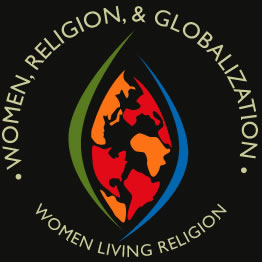On April 25 and 26, 2008, The Women, Religion and Globalization Workshop examined how “charity” broadly conceived is integral to contemporary configurations of religion, politics and justice. By considering how various faith traditions seek to implement their commitments to charity, particularly through practices of hospitality, reconciliation and development, the workshop worked to advance understandings of how the desire to help the needy, advance the underprivileged, and serve the outcast is not only a theological mandate but also a political gesture inflected by issues of power and policy. This workshop oriented itself, in part, around the question, “who are our neighbors and what does that relationship require of us?” – a question that we believe animates some of the most pressing theo-political issues of our time.
The Workshop hosted three different panel sessions:
The first session focused on Philosophy of Charity in Islam. Panelists included Fatima Chaabani, WRG Fellow, and Dr. Jasser Auda, Director and Founder of Al-Maqasid Research Center on the Philosophy of Islamic Law. Ms. Chaabani and Dr. Auda discussed the various definitions of charity within Islam, and the importance placed on the concept of giving, in terms of private charity, endowments, and government taxes redistributed to the poor. They also explored how issues of charity within Islam relate to questions of gender equality.
The second session, entitled The Desire to Fix It: Issues of Reconciliation, was led by Rev. Mpho Tutu, WRG Fellow, Episcopal priest, Founder and Executive Director of the Tutu Institute for Prayer and Pilgrimage, and Chairperson of the board of the Global AIDS Alliance, as well as Marinetta Cannito Hjort, the Baptist Chaplain at American University, and an international trainer and consultant on Restorative Justice and Nonviolent Conflict Transformation. Rev. Tutu and Ms. Hjort examined the concept of restorative justice- looking at the victims needs and working to bring the parties involved together- as a path for community restoration and reconciliation. The panel analyzed the pillars of the restorative justice concept, the process a community goes through in facilitating reconciliation, the role of the victims, offenders, and the other actors involved in restorative justice healing, and the processes of re-integration and reparation.
The third session, Developmental Justice, featured Marisa Van Saanen, WRG Fellow, previous Faith Liaison for the World Bank, and current student at Yale Law School, and Katherine Marshall, Senior Fellow at Georgetown University’s Berkeley Center for Religion, Peace and World Affairs, and Director of the World Faiths Development Dialogue. This panel discussed the relationship between international development efforts and faith, with a specific examination of the role religion has played in the World Bank. Issues were raised regarding the pitfalls and benefits of religious currents running through development projects, the gendered aspects of religious rhetoric in development, and role of religious activity in a modernizing world.
The WRG Project is organizing three afternoon workshops for graduate students with the Spring 2009 Women Living Religion Fellows. Details about the workshops will be posted as they become available.
In the Fall of 2009, the WRG Project will host a major International Conference at Yale on issues related to Women, Religion, and Globalization.

